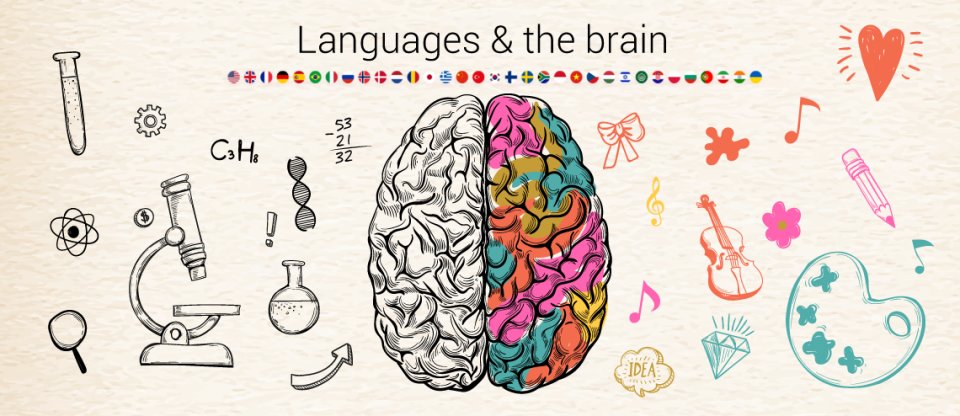How to Say Merry Christmas in 21 Different Languages
How does Santa know so many languages? 🎅 Let's discover his secret.
We’ve all heard of brain training. The science behind it is widely accepted, but what are its main benefits?

We’ve all heard of brain training. The science behind it is widely accepted and the concept is largely portrayed using the ‘workout for your brain’ analogy.
But can the brain simply be exercised like a muscle and are there any activities in particular that are especially effective cognitive workouts?
Many linguists and neurologists indicate that the answer would certainly be that the brain does respond in a similar way to a muscle, growing in size after regular stimulation. It’s also widely acknowledged that language learning is one of the most successful forms of brain training. Read on in order to discover what are the psychological benefits of learning a second language.
It is common knowledge that there are numerous social benefits of learning a second language.
The ability to travel, improving your cultural awareness, bragging rights and even understanding your own language better. Also, it is estimated that people who speak foreign languages earn up to 8% more than those who don’t.
But studies over recent years have shown that not only does learning a language make a person more open-minded and tolerant of other cultures, but it can also play a huge part in fending off diseases such as Alzheimer’s. So there are also mental health benefits of learning a second language.
In the past, it was assumed that speaking more than one language could confuse the brain and have negative effects on cognitive functionality, modern-day experts agree that this couldn’t be further from the truth.

There are several other reasons that you should be learning another language…
Although it may seem like everyone speaks English, around 80% of the world’s population doesn’t speak a word. If you learn a new language (especially one of the more widely spoken ones) you significantly increase the percentage of people on Earth that you can speak to.
Looking for a new job? Speaking languages also makes you much more employable, even if the job you’re applying for doesn’t require the language(s) you speak. It shows that you have great communication skills, international awareness and the brain of a multilingual – which, as we’ve already established, is a highly desirable attribute.
So, what language will you learn? Will it be French, Spanish, Turkish, or maybe Bulgarian?
So, do these cognitive benefits of learning a second language seem like something you should strive for?
Research has managed to pinpoint the optimum age for language learning. Between the ages of two and four years old the brain is at its most absorbent. The world-renowned linguist, Noam Chomsky, states that children of this age can learn up to a new word every hour.
What’s more, is that their brains are able to retain this new information after only hearing the word once. Comparing this to the ability of an adult brain, you get an idea of how impressive this rate of language acquisition is.
If you’re reading this, then the chances are that you’ve waved goodbye to that golden period of language learning, but the good news is that the cognitive benefits of tackling a new language can still be reaped by people of all ages.
You are never too old to learn a new language. No matter what age you are, it will always have dramatic and positive effects on your brain.
By the way, the learning method you use might make a world of difference! That’s why we recommend getting the Mondly app now and starting this journey as soon as possible. We’ll also help you discover the best way to learn a language online!
Comments are closed.

How does Santa know so many languages? 🎅 Let's discover his secret.

Cupid's arrow hits harder when you say it in Italian. 💞

Asian languages are great, no doubt about it! But what are the greatest of the great? Read on and find out.
Hi Sebastian
Thank you it makes me more determined to learn a second language .
Your blog was brilliant thank you once again
Alan
I am 82 years old & I am finding the French lessons easy to learn & fun to do.
Mary, that’s fantastic! Keep on learning:)
Fantastic Mary
Keep it going
Love n hugs Alan xx